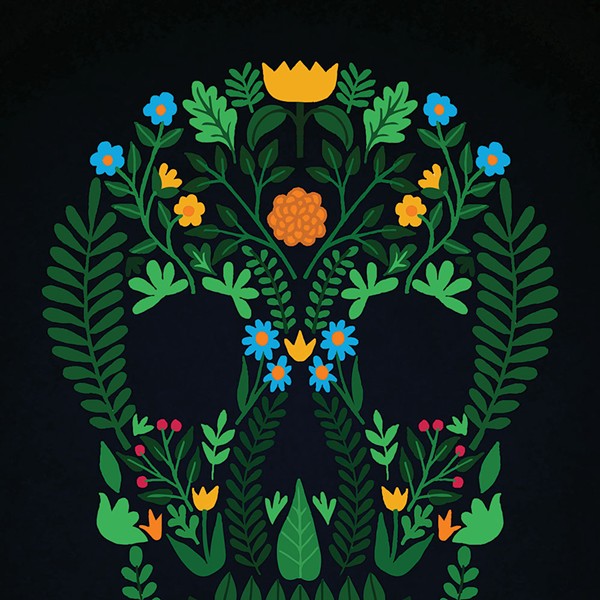Havana, Cuba
Just the other side of the overpass that crosses the Via Blanca from Santa Cruz del Norte, about 30 miles due east of Havana, there's a dusty baseball field. It's a pretty serious setup for a town that small. It has a concrete wall around it, with dugouts for both the home team and visitors. The concrete is chipped. The paint is weathered. On the other hand, there's no graffiti, no obscenities, no subversions, no tags.
The concrete bleachers along the left field line from home plate to third base have 11 rows of bench seating, a simple cantilevered roof for shade, and, at the top, along a white wall about three feet high, there's a slogan in simple, uppercase block letters: socialism o muerte.
Socialism or Death.
The last remaining Communist countries, in addition to Cuba, are China, Vietnam, Laos, and North Korea. China has notoriously, vigorously, and aggressively embraced capitalism. Vietnam is open for business. Laos is incredibly poor, 80 percent of its population are subsistence farmers, and, according to the US, it's "no longer a Marxist-Leninist state." North Korea remains genuinely Communist, except that the leadership is hereditary, like a monarchy, and it's the most miserable of the lot.
The Cubans are a people of great strength, able to accomplish the things they truly care about. As far as I can tell, there are only two. The first is retaining their independence in the face of 50 years of relentless quasi-military and economic assaults from the United States. The second is keeping all those old, prerevolutionary American cars running, in spite of the embargo imposed by the United States.
According to most of the statistics by which we measure the health of nation states—literacy, life expectancy, health care, and infant mortality—Cuba is doing very well. Especially as compared to its neighbors in and around the Caribbean. Even as compared to certain parts of the United States, like Mississippi.
Cuban crime rates are very low. But that's characteristic of totalitarian countries. In 1990, just after the Berlin Wall came down, my wife and I were in Czechoslovakia. As we walked by a grocery store, my wife said, "Oh, look, they leave their baby carriages outside." Since we had our 18-month-old daughter with us, it was the sort of thing we were particularly aware of. Then, as we got closer, she said, "Oh. And they leave the babies in them."
If the Czech mothers had done that in the USA, it would have been seen as so reckless and dangerous that they'd have been arrested.
Cuba is stable. No coups (unlike Bolivia, Honduras, Chile, Ecuador, El Salvador, Peru, Venezuela, Guatemala, Dominican Republic, and Haiti). No civil wars (unlike Colombia, El Salvador, and Honduras). No American invasions (Dominican Republic, Panama, and Grenada). No long, nagging guerrilla campaigns (Argentina, Uruguay, Guatemala, Peru, Nicaragua, Colombia, El Salvador, and Brazil). No narcostates within the state (Bolivia, Colombia, Jamaica, Mexico, Guatemala, and Honduras). And although it is a police state, and a nation under siege, the Cubans have rarely acted with the ferocity of the right-wing dictatorships like those in Chile and Argentina or the viciousness of the militaries, police, and paramilitaries in Latin America's Dirty Wars.
And yet, the message from Cuba, implicitly, and now explicitly, is no longer Socialism o Muerte. It has become Socialism esta Muerte.
Cuba's economy, and Cuban society, has become a dystopian vision suitable for a story by Ayn Rand, Paul Ryan's favorite author. Rand came from the Soviet Union. Their art was called Socialist Realism. For those unfamiliar with the genre, the "realism" it refers to has even less to with what's real than reality television. Whether paintings, posters, or statues, the style depicts peasants and workers as heroes out of DC Comics who also happen to embody Marxist slogans. Rand retained the bold Batman simplicities, but turned the messages inside out. In her most famous book, Atlas Shrugged, the world has drowned in "collectivism." The entrepreneurs go on "strike" and exact delicious revenge against the low-life leeches from will-sapping, soul-destroying, enterprise-crippling unions! The "job-creators" disappear to an invisible mountainous retreat, followed by one really hot, swooning WASP heiress. Or something like that.
Living in America, or even some lefty part of Europe like France, it's all quite ridiculous. Or should be. Unless you're Paul Ryan or someone who thinks Paul Ryan is a "real" thinker. But if you came from the Soviet Union it begins to make sense. As it does from Cuba today.
Wages are about $20 a month. Yes, you read that correctly. And almost everybody is paid the same wage. Many fundamentals—like rent, health care, insurance, social security, and education, all the way through university—are free. There are no taxes. Prices are set artificially low. Still, $20 is next to nothing. It is nothing if you want to buy any of the material goods that come from outside and have to be paid for in hard currency.
As a result, almost everyone has a second job. A private, almost secret, not quite legal one, which involves, because it must, stealing, cheating, and rule breaking. A special kind of corruption has entered into every transaction at every level. At dinner with an American journalist living in Havana with his wife and young children, the conversation turned to diapers. Like almost everything else, they have to come from government stores. At some point along the supply chain, someone slices them open, removes the magic super-absorbent stuffing that makes childrearing significantly more tolerable, resells that part privately, and replaces it with cheaper, relatively useless, stuffing.
In 2008, Fidel Castro stepped down. His brother Raul stepped up. That was greeted with a yawn in the US, a swap of Tweedledum for Tweedledee. But Raul immediately announced that Cuba must change. That it would slip-slide away from socialist principles and adopt market principles. It would happen slowly, beginning with restaurants, small stores, private farming, and private markets.
Sociolismo esta muerte.
The previous times that Cuba tried Capitalismo, it was equally disastrous, from the other side. Gangsters like Meyer Lansky owned the president, and US corporations like AT&T, United Fruit, and US Steel owned everything else. The few got rich, the people got nothing, and it was no less a police state, but from the right.
Can Cuba find a middle way? Is there a middle way? The United States seems to have had one for many years. Now we seem bent on abandoning it. How far will we go?
Larry Beinhart is the Senior Producer of the Al Jazeera English show, "Empire." Watch the latest episode which discusses political matters in Russia.

















